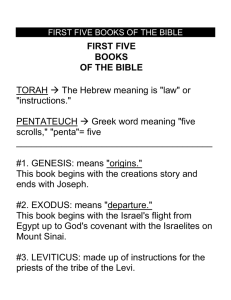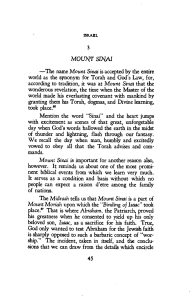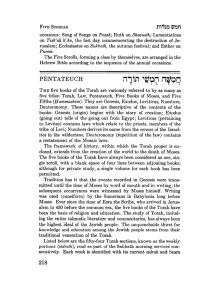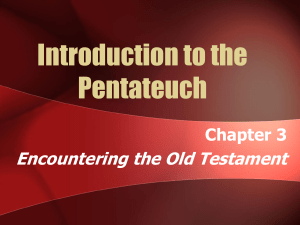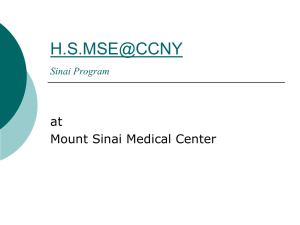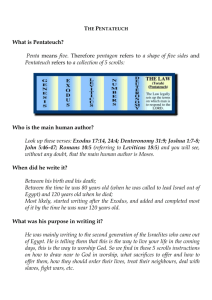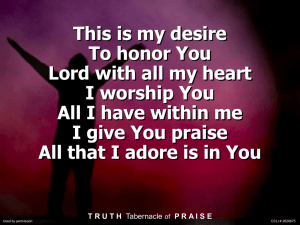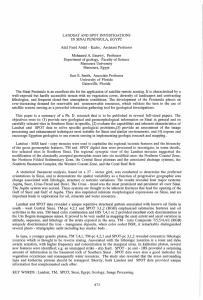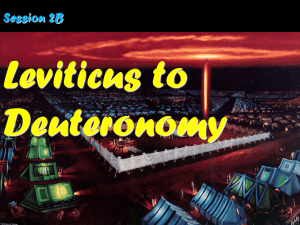A BROAD OUTLINE OF THE TORAH / PENTATEUCH
advertisement
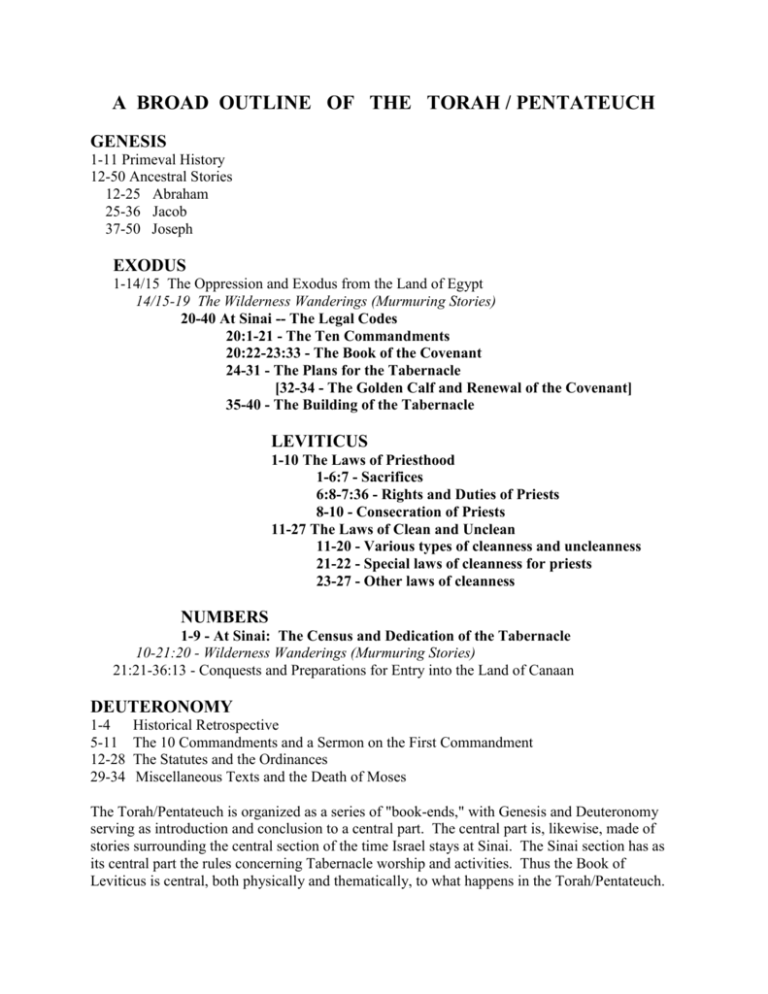
A BROAD OUTLINE OF THE TORAH / PENTATEUCH GENESIS 1-11 Primeval History 12-50 Ancestral Stories 12-25 Abraham 25-36 Jacob 37-50 Joseph EXODUS 1-14/15 The Oppression and Exodus from the Land of Egypt 14/15-19 The Wilderness Wanderings (Murmuring Stories) 20-40 At Sinai -- The Legal Codes 20:1-21 - The Ten Commandments 20:22-23:33 - The Book of the Covenant 24-31 - The Plans for the Tabernacle [32-34 - The Golden Calf and Renewal of the Covenant] 35-40 - The Building of the Tabernacle LEVITICUS 1-10 The Laws of Priesthood 1-6:7 - Sacrifices 6:8-7:36 - Rights and Duties of Priests 8-10 - Consecration of Priests 11-27 The Laws of Clean and Unclean 11-20 - Various types of cleanness and uncleanness 21-22 - Special laws of cleanness for priests 23-27 - Other laws of cleanness NUMBERS 1-9 - At Sinai: The Census and Dedication of the Tabernacle 10-21:20 - Wilderness Wanderings (Murmuring Stories) 21:21-36:13 - Conquests and Preparations for Entry into the Land of Canaan DEUTERONOMY 1-4 5-11 12-28 29-34 Historical Retrospective The 10 Commandments and a Sermon on the First Commandment The Statutes and the Ordinances Miscellaneous Texts and the Death of Moses The Torah/Pentateuch is organized as a series of "book-ends," with Genesis and Deuteronomy serving as introduction and conclusion to a central part. The central part is, likewise, made of stories surrounding the central section of the time Israel stays at Sinai. The Sinai section has as its central part the rules concerning Tabernacle worship and activities. Thus the Book of Leviticus is central, both physically and thematically, to what happens in the Torah/Pentateuch.
